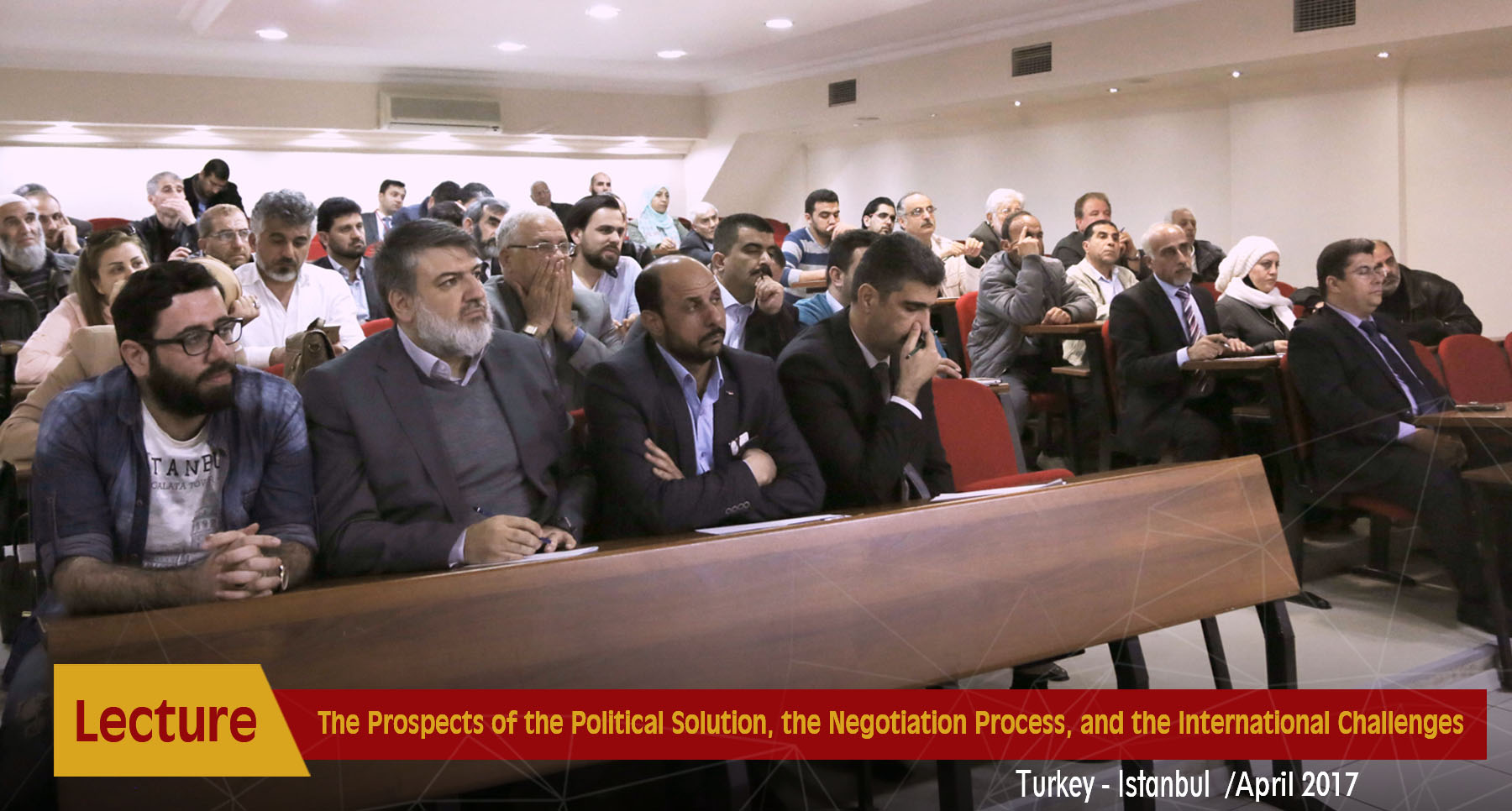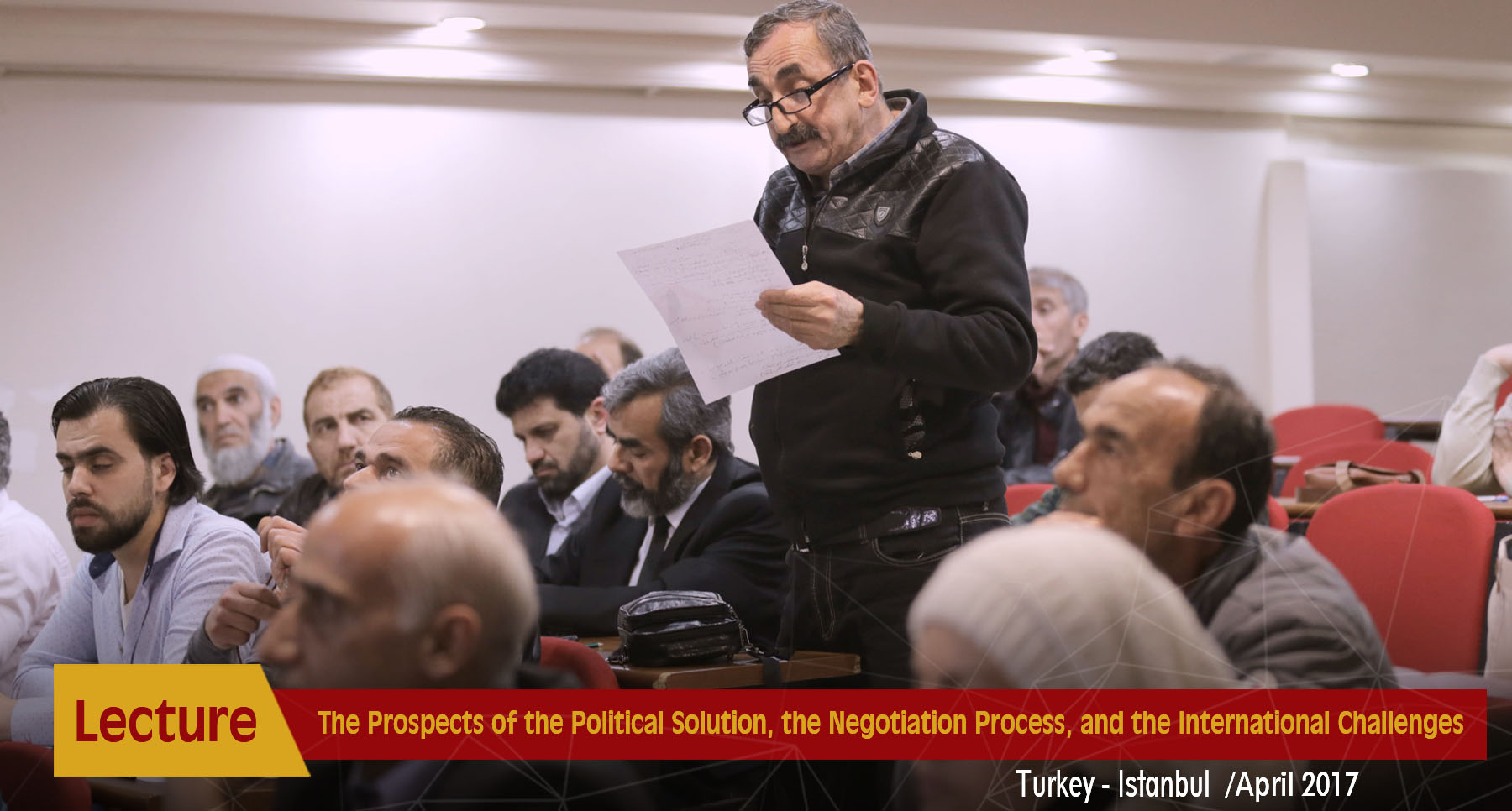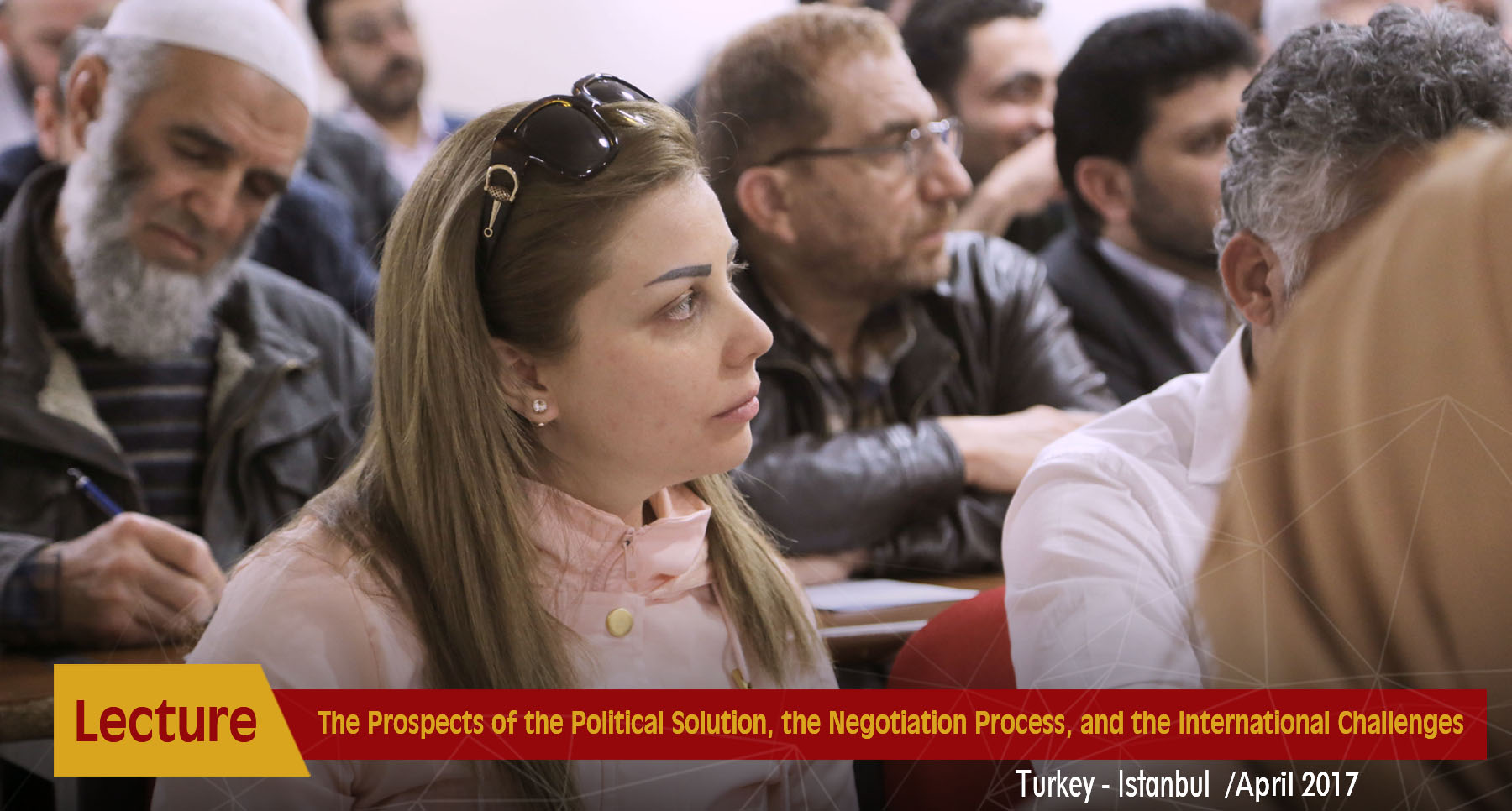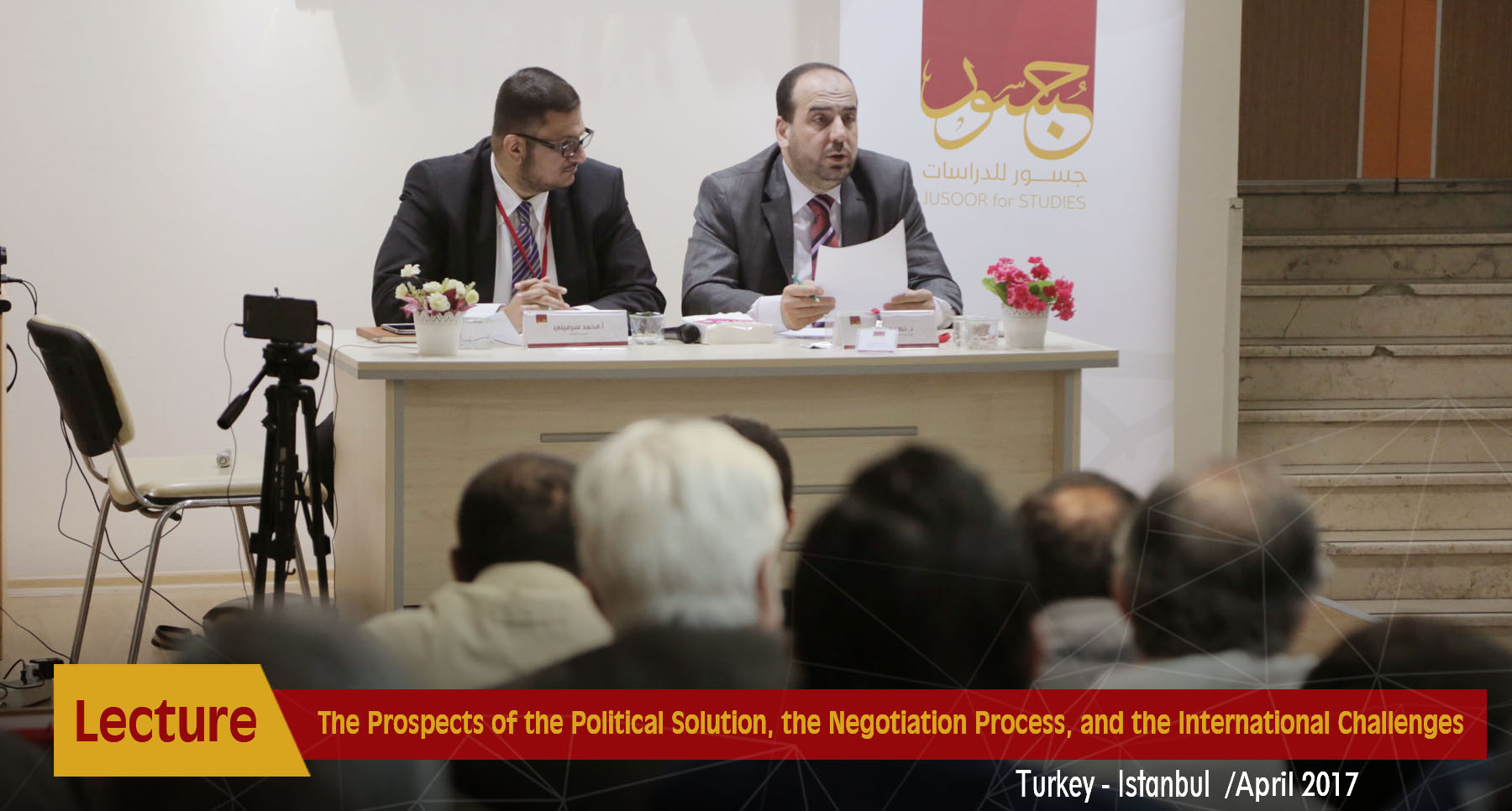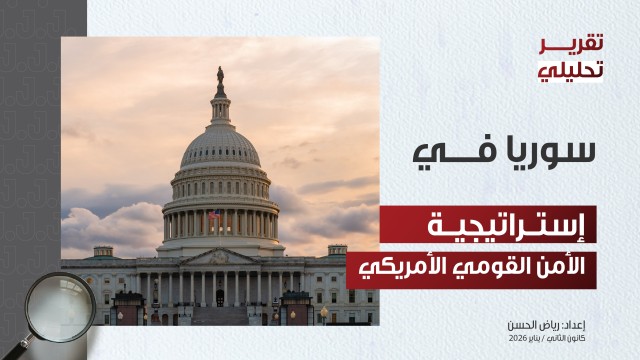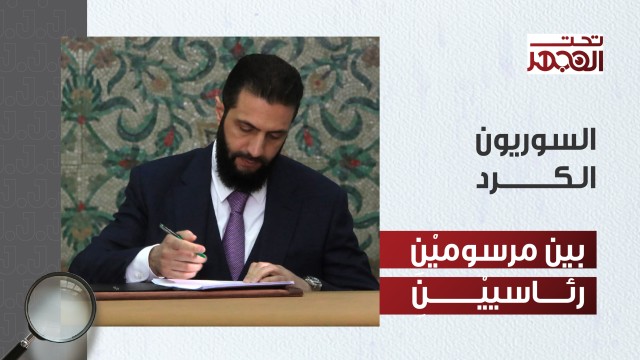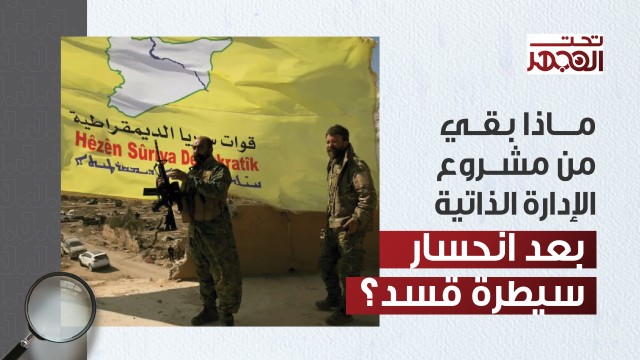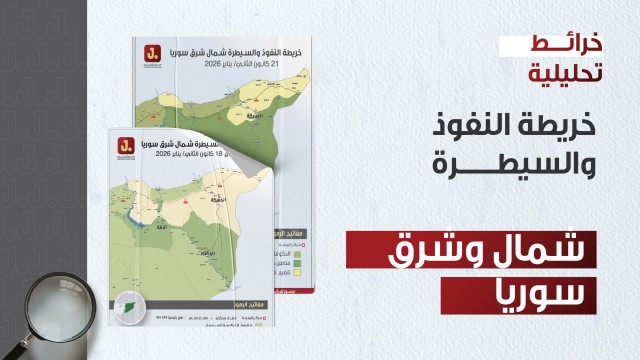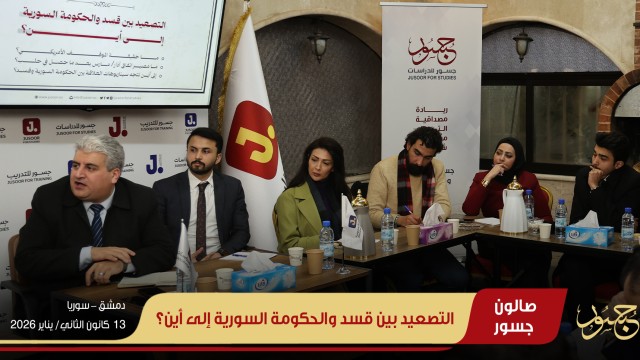Seminar on the Prospects of the Political Solution, the Negotiation Process, and the International Challenges
Jusoor for Studies organized a seminar under the name "the Prospects of the Political Solution, the Negotiation Process, and the International Challenges", as Dr. Nasr Al Hariri, member of the political body in the Syrian Coalition for the revolutionary forces also head of the opposition delegation in Geneva negotiations, lectured in the seminar that took place in Istanbul city on 15th April 2017.
Mr. Mohammed Sarmini, the General Manager of Jusoor for Studies center made an introductory statement, showing the most notable points that the meeting would address including the mechanism of investing the new regional and international events in the negotiation process along with identifying the opposition role at political and field levels.
Dr. Nasr started his lecture with general browsing of the events before the launch of negotiations, at which the key feature was about the Russian's attempt to single out the military and political issues within an atmosphere of an international silence, as an open battle against the Syrian people.
The points related to the pillars of the political process addressed by Dr. Nasr, can be summarized as the following:
1. The regime: the political profile wasn't a priority for the regime, depending on the military solution constantly. Moreover, the political process was undermined by the military escalation, focusing on the claims of fighting terrorism.
2. Forces of the revolution and opposition: stressing on the international benchmarks that acknowledge the political process in Geneva, keeping the unity of the Syrian opposition along with achieving the opposition's political views through its summaries.
3. UN: represented by countries that lost their international will to adopt an effective political process.
4. The American position: the American position was absence for long time, giving priorities to ISIS and Iran, as the opposition is on the same page with these priorities because any limitation of ISIS expansion means a limitation for the Syrian regime itself in addition to the fact that, any shrinkage of the Iranian influence means a shrinkage in the Syrian regime influence.
The American administration tried to convince the Russians to open the international bazar, which is a complicated process because the Syrian affair is part of this bazar, as the terrorism profile is the most notable one in this bazar due to its relation with adopting the political process as per the opposition statements. As for the American strike against the regime as a response for Khan Shaykhun chemical massacre, it should be understood as a message to the Syrian regime and its allies rather than a military operation.
After that, a discussion took place about the most significant recommendations as the following:
1. The greatest challenge for the Syrian opposition is finding a real alternative for Al Assad regime.
2. A challenge represented by the political unity and concurring upon clear principles for the political transition process.
3. Solving the problems of disunity and infighting between the military factions along with the expeditious handling of the unnational agendas and participating in unified operations against ISIS.
4. The Turkish role is firm concerning the removal of Al Assad regime, considering it as an axis of evil which needs to be eliminated thus, it will lead to the elimination of ISIS alongside preventing the establishment of any Kurdish canton near the Turkish boarders.
5. All parties to be invoked to the Syrian revolution interests as the first and last option the thing that, will convince the Syrians with the tasks and messages of the negotiating delegation and the High Negotiations Committee (HNC).
6. There is an urgent need to open communication channels and preparing a comprehensive informational speech to the supporters of Al Assad regime that can influence the polarization.
7. Combining the political and military efforts for the sake of fulfilling the Syrian revolution's objectives that oblige the regime and its allies to negotiate.
